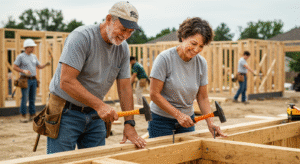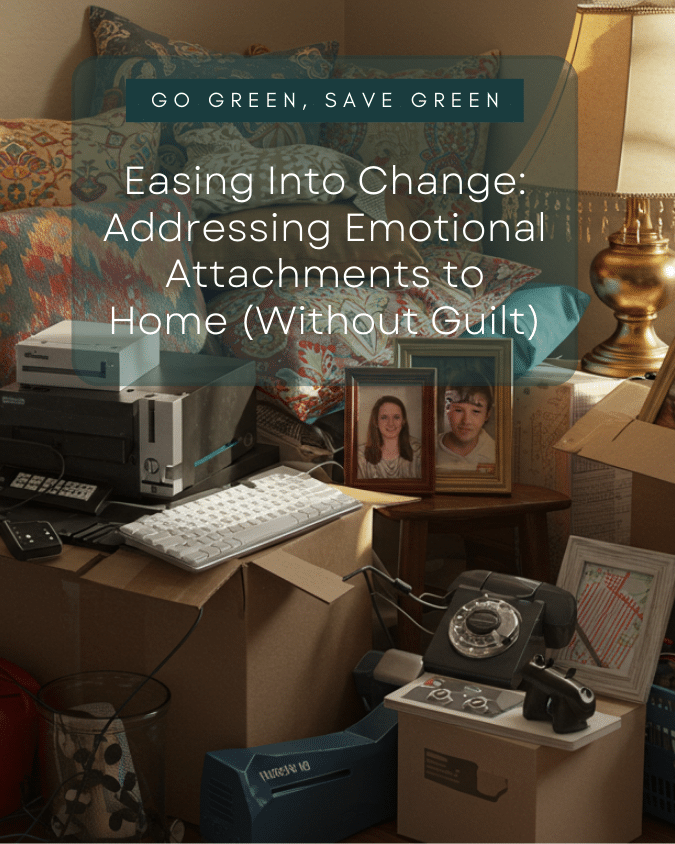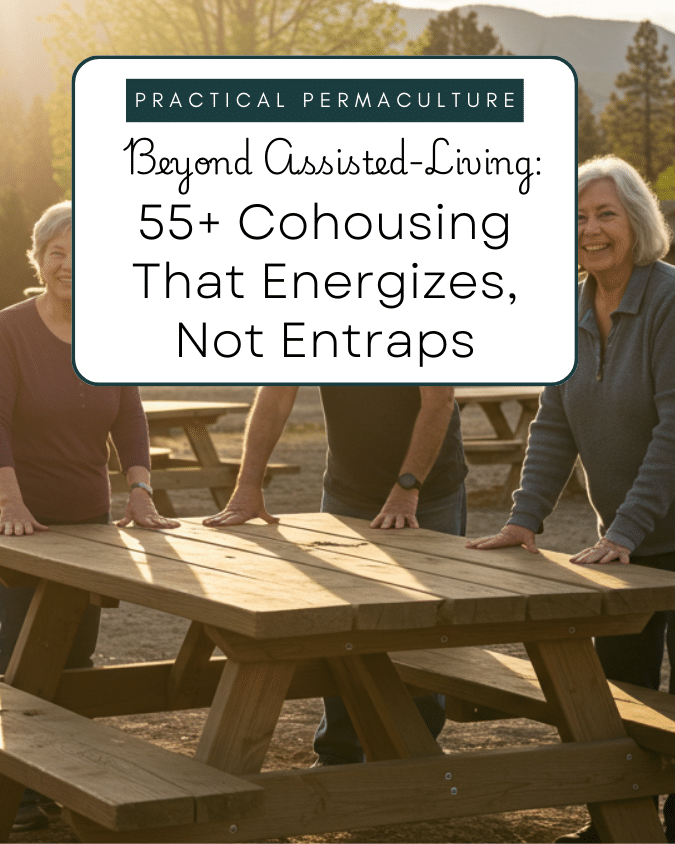
Can Volunteering Prevent Dementia? What the Science Says
You’ve heard “use it or lose it” when it comes to brain health. But what if the best way to keep your mind sharp isn’t puzzles or supplements—but purpose?
Emerging research shows that volunteering in retirement is linked to slower cognitive decline—and may significantly reduce the risk of dementia.
If you’re looking for a way to stay mentally agile, socially connected, and emotionally fulfilled in later life, the answer might be simpler than you think: give your time.
The Cognitive Benefits of Volunteering: What the Research Shows
Volunteering does more than help others. It creates a powerful trifecta for brain health:
- Cognitive stimulation – planning, teaching, problem-solving
- Social engagement – reducing isolation, building connection
- Sense of purpose – a known buffer against mental decline
And the data is compelling:
- 🔹 A 2021 study in JAMA Network Open followed over 13,000 adults aged 50+ and found that regular volunteering was associated with a 28% slower rate of cognitive decline over four years—even after adjusting for income, education, and health status.
- 🔹 Researchers at the University of Exeter discovered that older adults in meaningful roles (like mentoring or community organizing) showed greater neural resilience, with brain activity patterns resembling those of much younger individuals.
- 🔹 The Harvard School of Public Health found that retirees who reported a strong sense of purpose were 50% less likely to develop Alzheimer’s disease.
This isn’t just correlation. It’s causation in motion: purposeful engagement changes the brain for the better.
Why Volunteering Works: It’s Not Just “Being Active”
You might think any activity—reading, puzzles, walking—could offer the same protection.
But volunteering is different.
It creates what gerontologists call “enriched environments”—situations where the brain is challenged socially, emotionally, and cognitively at the same time.
Compare these two retirees:
- Retiree A spends most days at home, watching TV, occasionally doing crossword puzzles.
- Retiree B leads a weekly gardening group, teaches cooking classes to teens, and helps organize local food drives.
Who’s more likely to maintain cognitive function?
Spoiler: It’s Retiree B—not because she’s “busier,” but because she’s engaged in reciprocal relationships where she’s both giving and receiving value.
That sense of mattering—of being needed—is a powerful psychological and neurological tonic.
The Bigger Picture: We Need a New Model of Aging
The science is clear: Isolation harms the brain. Purpose protects it.
Yet today’s retirement model is built on isolation:
- 43% of seniors report feeling lonely regularly
- Many age in underused family homes, disconnected from community
- Existing senior living options often lack intergenerational connection or meaningful roles
We’re treating retirement as an exit—from work, from contribution, from impact.
But what if we treated it as an entrance?
Earth Keepers: Where Purpose Meets Regeneration
At Earth Keepers, we’re reimagining retirement as a time of continued growth, contribution, and ecological healing.
Our regenerative living communities are designed so that every resident can:
- Mentor younger generations in permaculture and sustainability
- Lead wellness workshops or skill shares
- Tend to regenerative farms that feed the community
- Participate in land stewardship that captures carbon and restores ecosystems
This isn’t just feel-good programming. It’s brain-healthy infrastructure.
When you volunteer to plant a food forest or teach composting to local students, you’re not just giving back to the Earth. You’re building cognitive reserve, strengthening neural pathways, and reducing your risk of dementia—all through purposeful action.
And the impact multiplies:
- 40,000 kg of CO₂ absorbed annually through regenerative land practices
- 10,200 lbs of fresh food grown locally—no transport, no waste
- 30% less water used through smart design
- Up to 50% lower energy use via passive design and sustainable materials
Aging isn’t the problem. The old model of aging is.
Be Part of the Solution: Invest in a Legacy That Grows
You can’t volunteer your way out of a broken system.
But you can invest in a new one.
Earth Keepers isn’t just building homes.
We’re building the future of regenerative living—where every senior has the opportunity to stay mentally sharp, socially connected, and ecologically impactful.
By becoming a founding investor, you’re not just funding sustainable housing.
You’re funding:
- A dementia-prevention model built on purpose and connection
- A housing solution that frees up family homes for younger generations
- A climate action plan where aging communities give back to the planet
This is retirement reimagined:
Not as decline, but as contribution.
Not as isolation, but as intergenerational legacy.
Join the Movement: Invest in a Future That Heals
Help build the first Earth Keepers community—where seniors thrive, the land regenerates, and purpose becomes preventive medicine.
🌱 Key Takeaways
- Volunteering is linked to a 28% slower rate of cognitive decline (JAMA, 2021).
- Social + cognitive stimulation in volunteering builds brain resilience.
- Meaningful roles reduce loneliness and increase life satisfaction.
- Earth Keepers integrates volunteering into daily life through mentorship, farming, and community building.
- Investing in regenerative communities supports both brain health and planetary healing.



